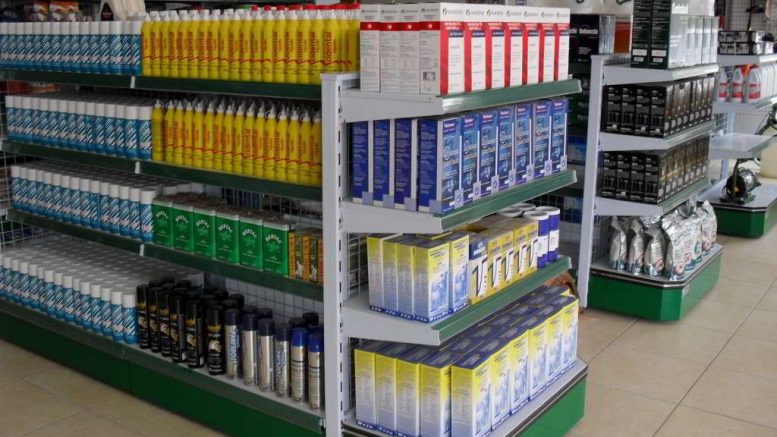“The franchisor becomes the preferred supplier of the franchisee”
Carlos Renato Brega is CEO of Goplan, an agronomist from the Federal University of Viçosa, with an MBA in business marketing from FGV, and was marketing director at Dupont do Brasil.

Carlos Brega, CEO of Goplan
AgriBrasilis – What is Goplan’s business model and in which regions does it operate most significantly?
Carlos Brega – It is a franchise model, that arised from the union of a group of businessmen (distributors of agribusiness inputs – franchisees), with extensive experience in the distribution segment, who decided to create Goplan S.A. (franchisor) to access, develop, import and offer private label products and services to its franchisees.
The franchisor becomes the preferred supplier of the franchisee/reseller of exclusive products and services, to provide more competitiveness, efficiency and sustainability for the franchisee’s business
AgriBrasilis – What is Goplan’s market? How has the company performed since its creation in 2020?
Carlos Brega – Goplan accesses the market through its franchisees in soybean, corn, coffee, fruit, vegetable and citrus crops, in the States where the franchisees operate (States of São Paulo, Minas Gerais, Rio de Janeiro, Espírito Santo, Goiás, Bahia, Tocantins, Maranhão, Pará, Paraná, Rio Grande do Sul), with 19 franchisees, 95 branches, more than 1000 employees and with a network revenue of US$ 600 million in 2022, serving 55 thousand customers
AgriBrasilis – How did the idea for this business model come about? What is your competitive differentiator?
Carlos Brega – The idea came from a group of resellers who, after watching the market consolidation led by the funds, decided to respond by uniting with the innovative franchise model.
This union gives us greater competitiveness, narrowing the supply chain. The presence and experience in the field of the franchisees, that maintains the management individuality with the owners of each franchise, supporting the business at the end, are our main competitive advantages. We think globally, but we act locally with the leadership and presence of the owners in the farms.
AgriBrasilis – What characteristics does Goplan look for in a franchisee? What are the costs for the franchisee?
Carlos Brega – The candidate must have experience in the agricultural distribution market, good reputation, solid financial indicators, good governance practices and, above all, a strong intention to continue in the market there they operate. That is, we are looking for franchisees that do not want to leave the market, do not want to sell their business and value a succession plan.
To become a franchisee, a franchise fee is charged. No royalties are charged, as would be the case in a traditional franchise. The franchise fee is not Goplan’s way of monetizing itself and is mainly used for the onboarding of the new franchisee.
AgriBrasilis – What are the company’s strategies to attract new franchisees? What are the company’s expansion plans?
Carlos Brega – Our intention is to be the franchisee’s best supplier, respecting the alliances that already exist with their other suppliers.
We seek to converge the franchisee’s desire with the benefits we offer, bringing high-performance products, with competitiveness and exclusivity, importing commodities and narrowing the supply chain and offering services and innovations that normally the distributor/reseller would take a long time to obtain without the help of the franchisor, such as apps, digital tools, CRM, fundraising, HR and Governance consulting, etc.
The company is growing into regions where there are still no new franchisees, as we do not encourage competition between our partners, as outlined in the shareholders’ agreement. There is still room for expansion in almost every State in Brazil.
AgriBrasilis – What precautions are recommended for these franchisees, in relation to business/financial strategies, for example?
Carlos Brega – The franchisee needs to be participative. We seek to give health to the franchisees’ business by preparing them for an audited balance sheet and benchmarking them through a rating of economic indicators. This gives the new franchisee the opportunity to position himself in the business, seeking the necessary improvements.
AgriBrasilis – The company is present in almost all regions of the country. What are the differences in the input market for the Midwest, Southeast, North…?
Carlos Brega – The differences exist mainly in relation to the size of the properties, but the demands are very similar in terms of products, prices, terms and services.
AgriBrasilis – What are the main challenges of the input distribution sector? Why?
Carlos Brega – The consolidation of distribution, creating large groups led by funds that acquire resellers, as well as international companies acquiring businesses across the country, is changing the traditional form of distribution and narrowing the supply chain. This gives them greater competitiveness, but can make life difficult for small and medium resellers.
On the other hand, the size of these companies can reduce flexibility in negotiations and the provision of technical assistance, and can create a certain impersonality, undermining the close relationship between dealers and farmers, that has always been highly valued in agriculture.
What we seek is to narrow the supply chain, in addition to offering franchisees a range of services, but without losing presence in the farms, maintaining the traditional relationship and flexibility in interactions with farmers. Our vision is to be an option for that traditional reseller who wants to stay in business with sustainability.
READ MORE:

